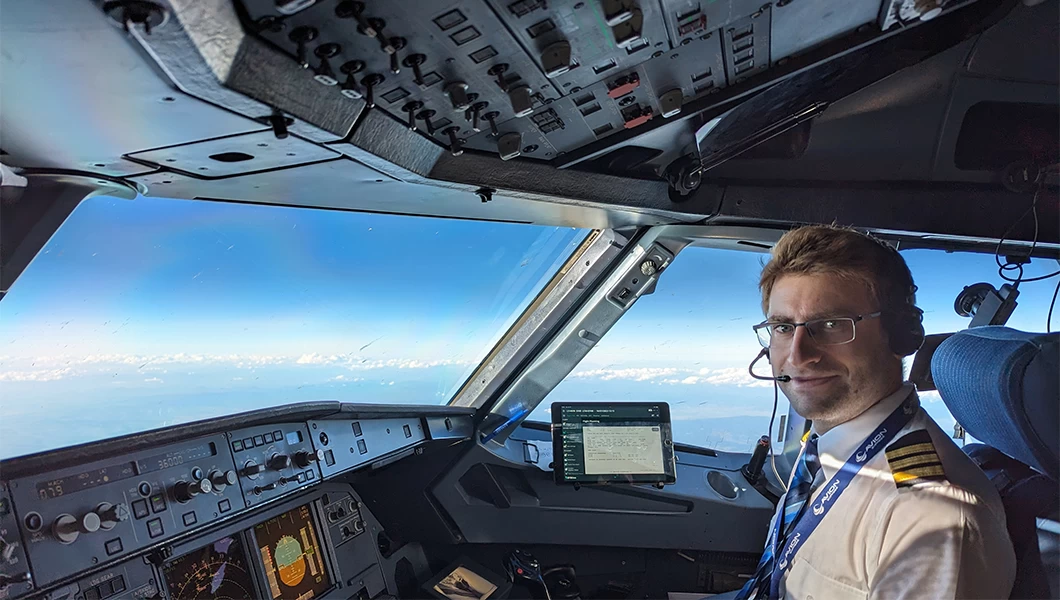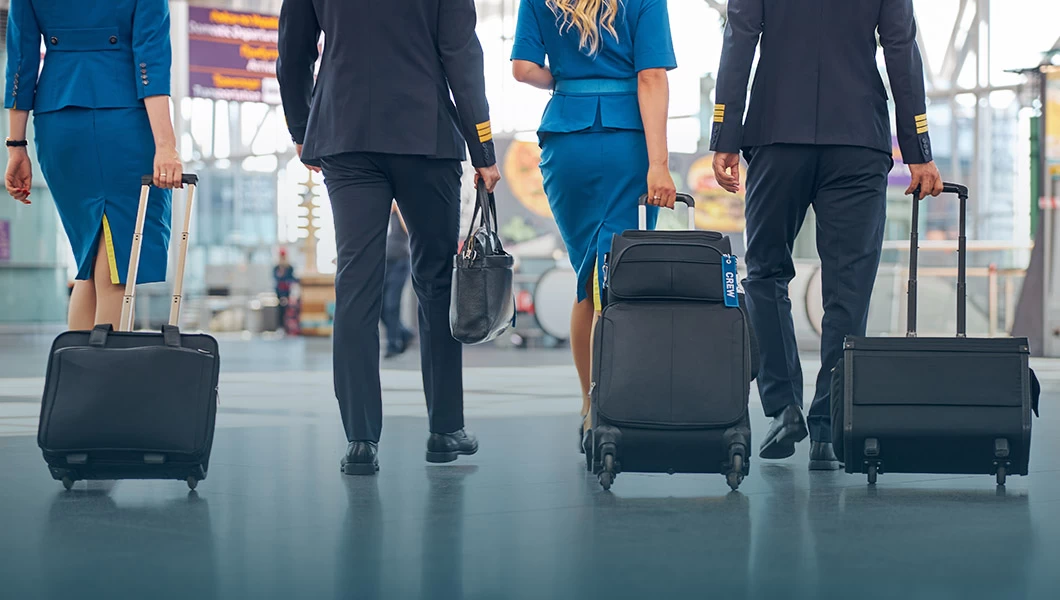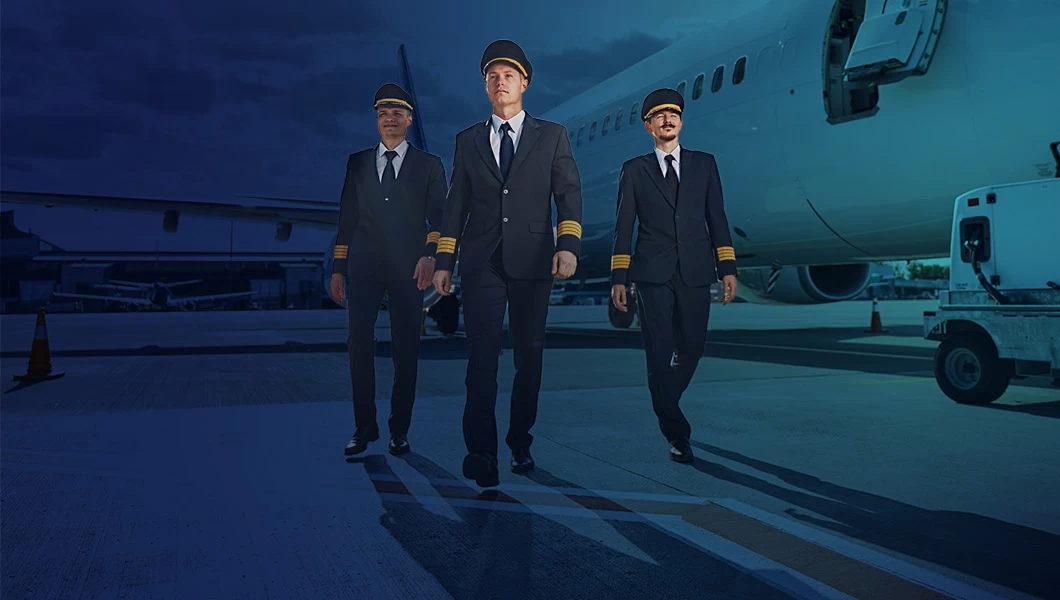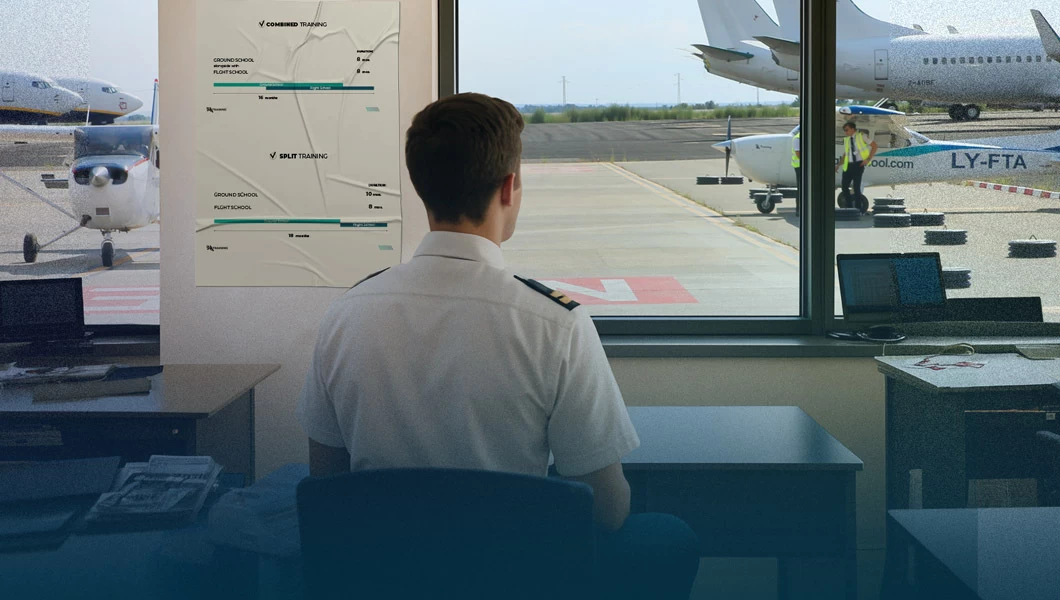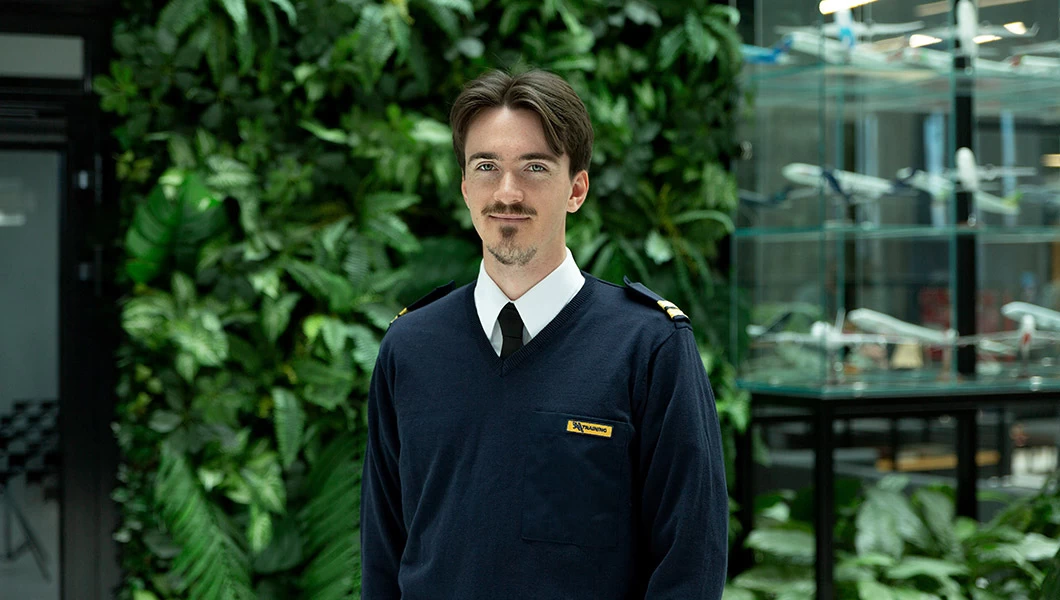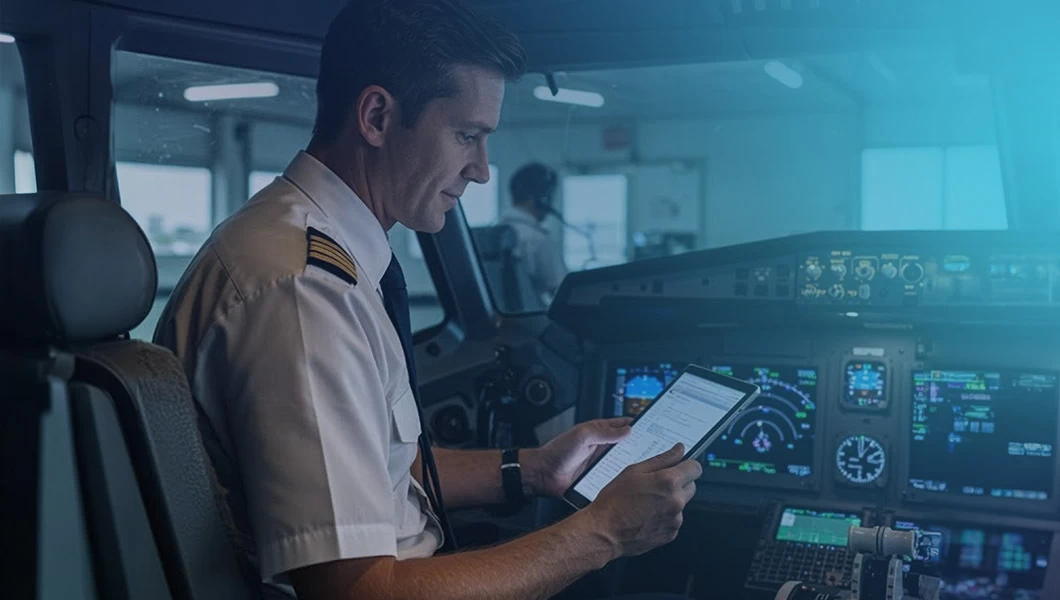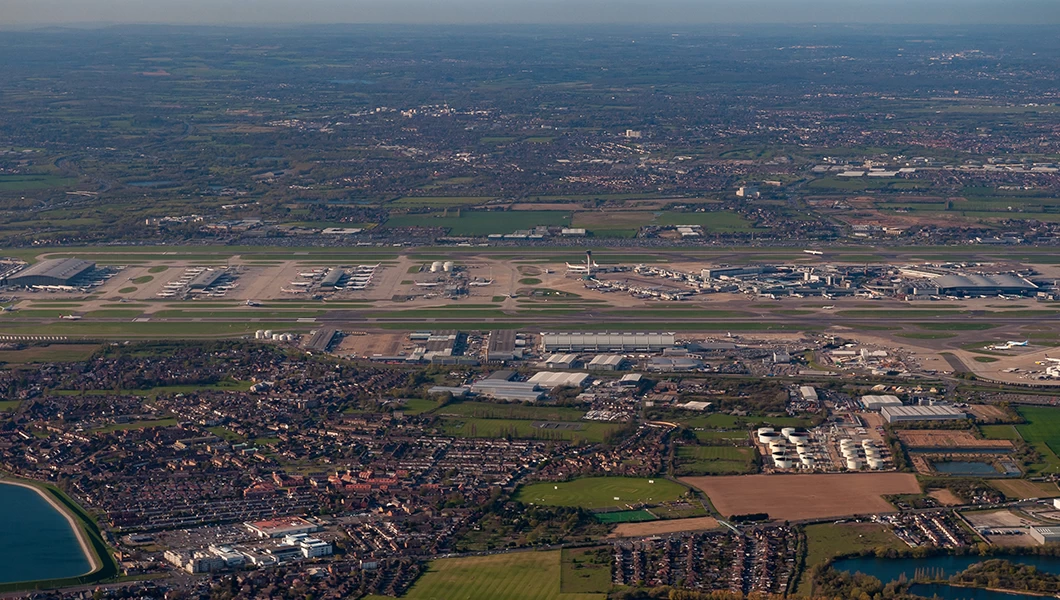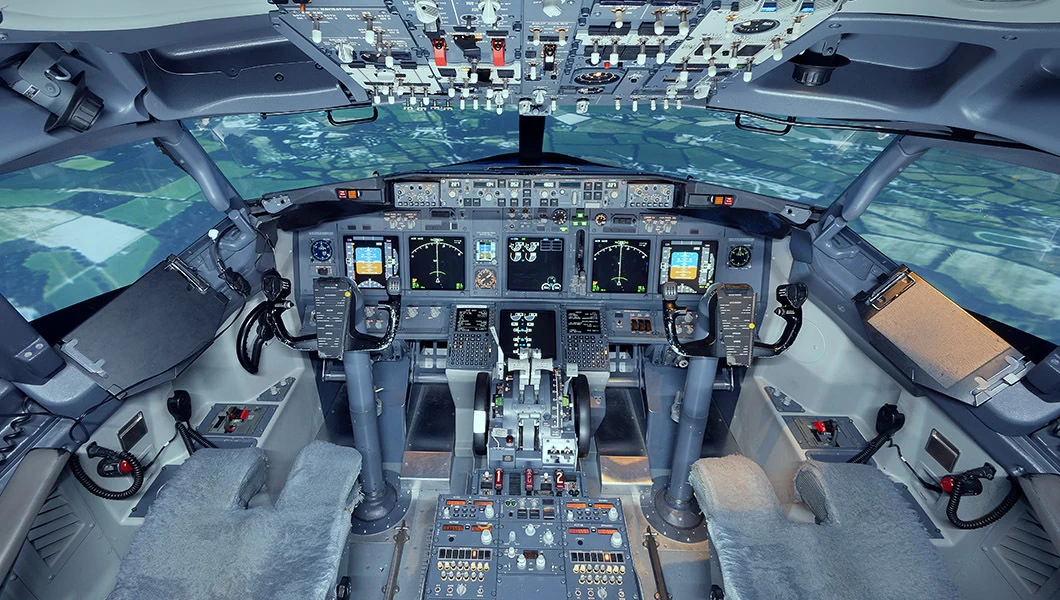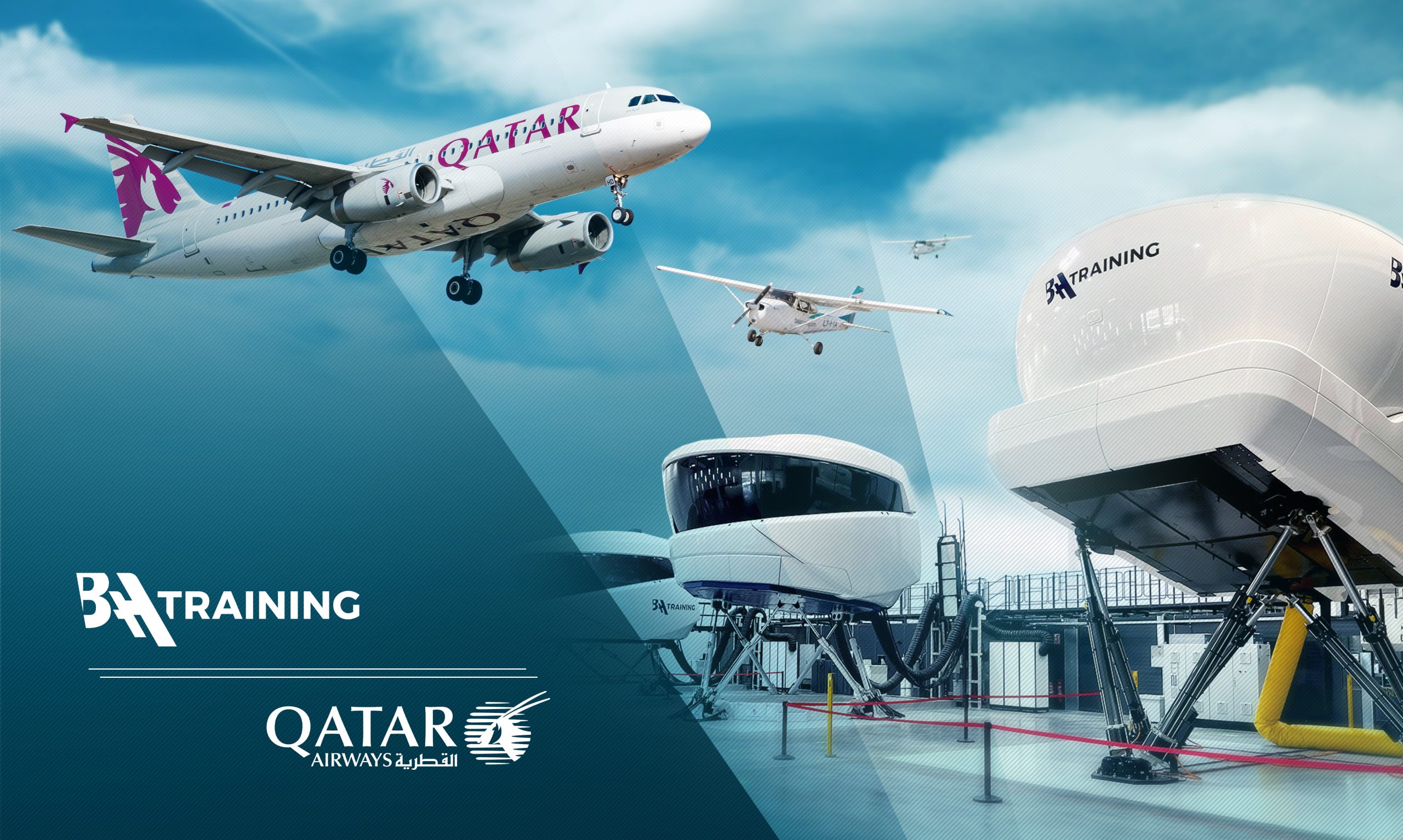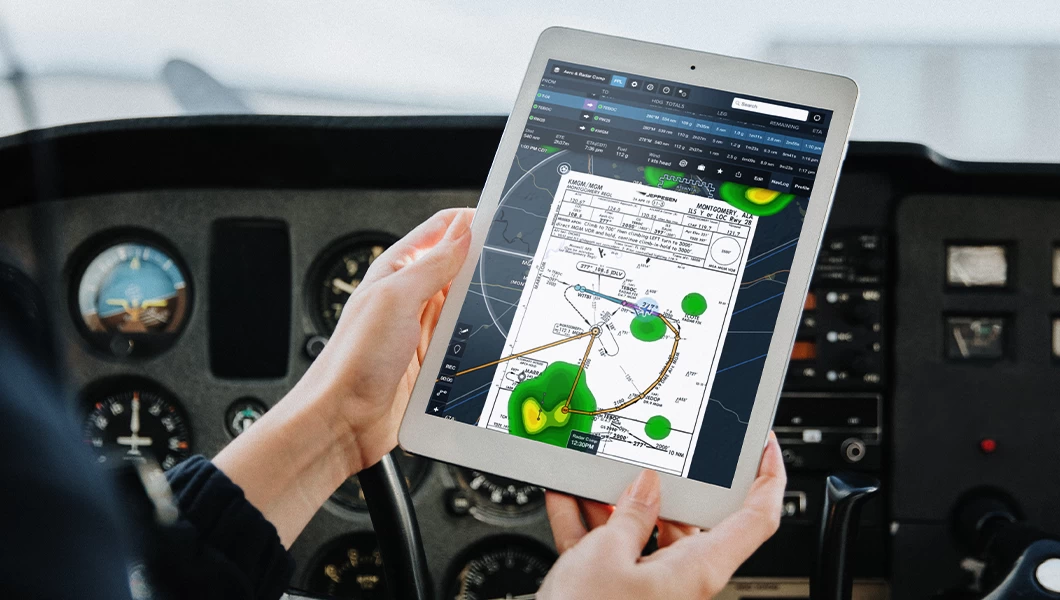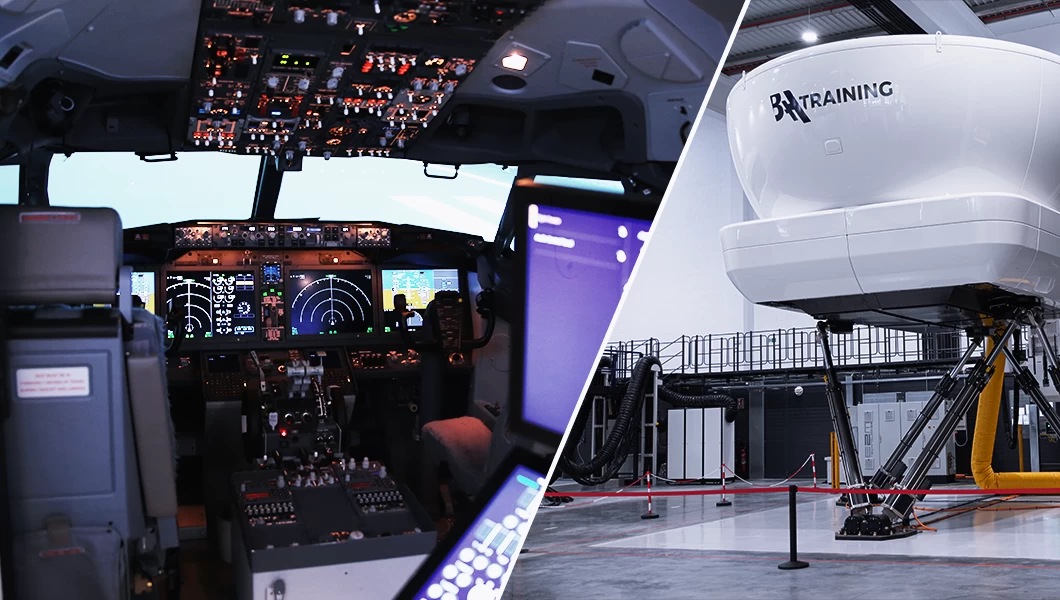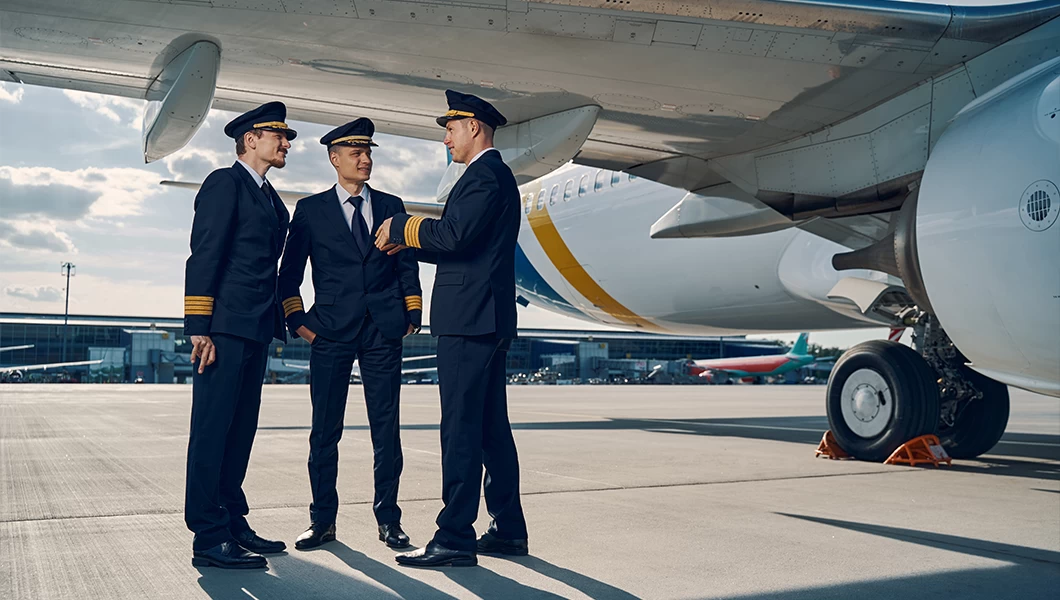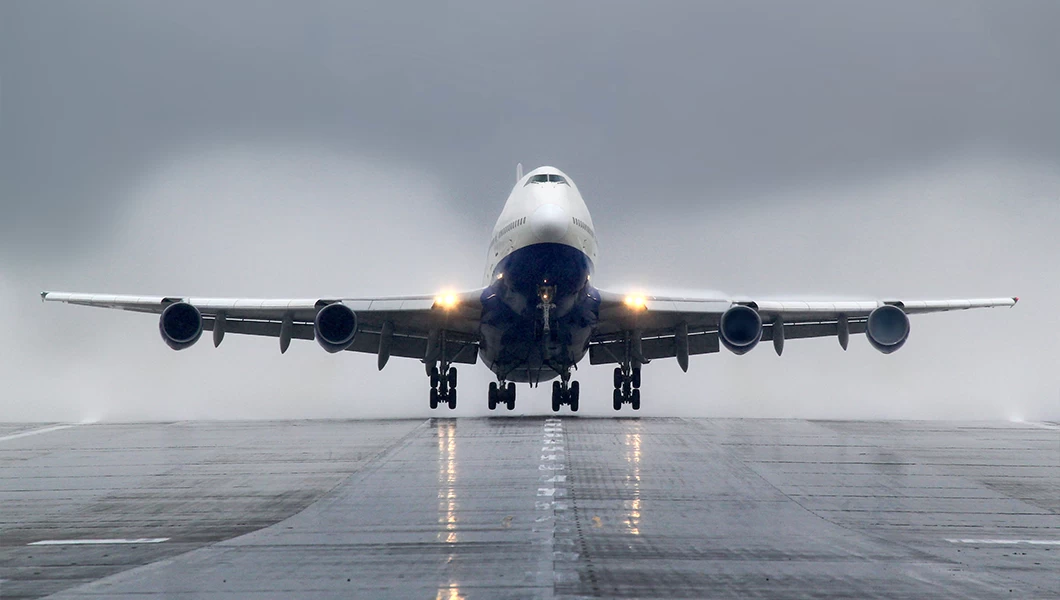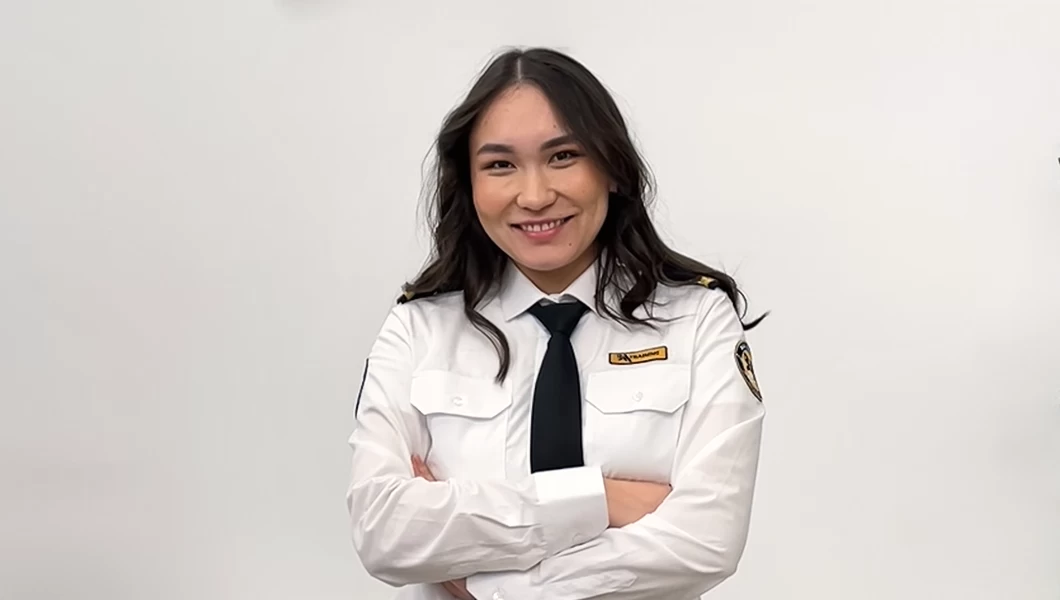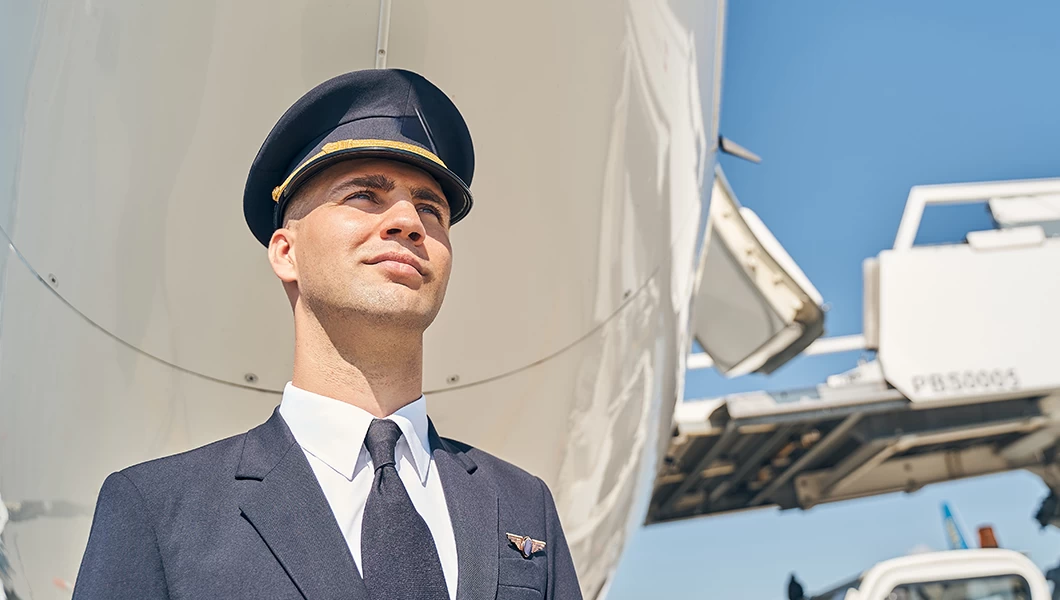So, we are releasing this article to reveal the most crucial things about us as an organization. To give you an idea of the honest view and objective opinion of someone with first-hand experience, we have asked our former student Oscar Bertrand to answer these questions.
Oscar has finished the Avion Express cadet program at BAA Training and is now a First Officer at Avion Express, a leading Charter and ACMI company.
Entry Requirements
• What are the requirements for enrolling in a pilot training program?
The minimum age is 18 years old. The cadet program is Ab Initio, thus no flight experience is required. However, having previous experience, whether on light aircraft, gliders, or ultralights, is a strong and valuable demonstration of interest and commitment. Do not underestimate experience with gliders; it is very good training, and I encourage everyone to start with this kind of experience. Also, a sound understanding of physics, aerodynamics, meteorology, etc., is a must-have.
Training Program Basics
• Can I work part-time during pilot training, or is it a full-time commitment?
It is definitely a full-time investment. However, I know some people who had a job at the same time and somehow managed to deal with both activities. But I strongly do not recommend it at all.
• Are there any specific medical requirements to become a commercial pilot?
Yes, depending on your age, a 1st class medical license has to be renewed at least every year. Having a good lifestyle is the best chance to keep your medical license current.
• How is the training structured?
It basically starts with a theory, 14 ATPL subjects their respective exams. Once you pass your first exam, you have 18 months to finish them all. The theory part takes around 7-9 months, depending on the individual.
Afterwards, you begin the first flying lessons, starting with VFR flights, learning the basic stuff about flying an aircraft and navigating, together with radio communication. Finally, IFR training on more performant aircraft, firstly on single-engine and then on multi-engine aircraft. That’s the most amazing part, flying at a high altitude with amazing sight over Spain! MCC (A320/B737) that ends the Ab Initio training up is done on an FFS simulator. Last but not least, you are going to start your Type Rating and Base training, the costs being included in the cadet program.
• How good do I have to be at Maths and Physics to pass the assessment?
It is not rocket science, but you need to have a good understanding of physics with a minimum scientific mindset. It doesn’t mean you NEED to have a degree in this area (I know a lot of people coming from very different areas such as cinema, finance, etc.), but a scientific culture and understanding are a must. Flying an aircraft is all about science and physics, after all!
• What is the pass rate for licensing exams? What if I don’t pass on the first attempt?
For the ATPL exams, all you need is to pass all 14 exams in 6 sessions. Should you fail one exam, it will be postponed to the next session. But never forget about the hard limit of 6 sessions. Failing one exam is not a big deal; just be aware of the 6 session limit. During flight training, you will have some intermediate exams in order to move to the next stage. Should you fail it, you will need to pay for some extra sessions.
Tuition Assistance
• How does one handle the financial aspect? Where can one get financial assistance to pay for pilot training?
I had a student loan from my bank; contact your bank for more information. Not all banks have the same terms and conditions to apply for a student loan.
Also, be patient. It took me a lot of time to save money before starting the training. Doing my engineering school in apprenticeship helped me save money, and I worked as a full-time engineer afterward for 2 years. Overall, it took me 6 years to be comfortable enough financially speaking.
In the meantime, build some flight hours in order to consolidate your interest in aviation. It is worth mentioning that flight hours on gliders are much, much cheaper than on general aviation aircraft. Go for it!
• Is there accommodation available nearby?
Lithuania and Spain are both quite affordable when it comes to accommodation, and finding a place is not too difficult. In Lithuania, people are quite international, making it easy to find English-speaking landlords.
Training Facilities, Aircraft, and Other Equipment
• What type of aircraft do students typically train on?
BAA Training students fly on C-172 G1000 (IFR) and Tecnam P2006 (multi-engine).
• Apart from aircraft, what other equipment is used in training?
All the necessary equipment will be provided (including a uniform). Take a basic calculator for the theory. BAA Training also uses an FNPTII trainer (for a smooth transition from VFR to IFR) and FFS (for MCC and Type Rating).
Instructors
• How experienced are the instructors?
Normally, being an instructor for CPL students requires a previous teaching experience with PPL student. I flew mostly with experienced Flight Instructor (FI) (when not flying solo). However, you may also encounter younger FIs, which doesn’t imply they are not professional. Some of them are airline pilots in parallel with instructing, but some are not.
Similar ARTICLES
• How often do flight instructors provide feedback on students’ progress?
There is always a briefing/debriefing in aviation culture; the instructor fills out a form after each flight.
Post-Training Support and Employment
• Is there a minimum flight hour requirement to join an airline as a First Officer?
Having finished the BAA Training’s Ab Initio Avion Express cadet program (ATPL Integrated format), you will have the minimum required for an airline. Each airline has its own requirements for external pilots – in Europe, some hire low-timers, while others do not (some can ask for up to 500 hours on type or even more). But as an Avion Express cadet, there’s no need to bother about that as you enter the airline immediately as their pilot.
Performance and Stress Management
• What is the best way to deal with mental stress during training and later when employed?
Give yourself all possible chances of succeeding in your exams. Failing is never comfortable. The most stressful part of the training was ATPL theory. It is hard work, and you may find yourself struggling for a while before becoming really familiar with the subject. Hold tight.
Stress really comes up once you’re in a company. It is a stressful job. You have time pressure, need to be extremely flexible, accept early morning flights, be organized, and always be proficient. Also, depending on the company, be willing to leave for several weeks far away from home. Self-discipline is also a must.
• During the training period, is there normally time for leisure activities? Does the academy organize any cadet gatherings?
Yes, we had some football tournaments organized by BAA Training. Generally speaking, expect a nice social life despite the amount of work. Both Vilnius and Lleida-Alguaire are lovely cities and not too expensive.
Your PILOT CAREER
starts with a first click
Career Aspects
• What is the salary range for pilots, and how does it grow over the years?
It can start extremely low, but luckily, it grows very fast. It can be tough for the first 200 flight hours of flight time. It’s a matter of a few months.
• What is the chance of not getting a job after investing time and money?
It is purely up to you; it’s hard to answer this question. People I know who did not get a job were actually not really looking for it anymore afterward. On the other hand, all the people I know who were willing to get a job… got a job!
A Matter of Choice
• Why choose BAA Training as a training provider?
Because of the cadet programs. You can enjoy the partnership BAA Training has with sister companies like Avion Express and SmartLynx!
That means if you enroll in a cadet program from scratch, pass the airline interview, and ensure your academic record meets the benchmark, you immediately join the airline as a First Officer!
• Why choose Avion Express as an employer?
With Avion Express, you enjoy the opportunity to fly all around the world, and it is a „once in a lifetime“ opportunity as a commercial pilot. Do not underestimate the cultural side of the job! Last but not least, flying on the A320 gives you excellent opportunities in the market.
Interested in joining pilot training yourself?
If you have no previous aviation experience and are interested in the Avion Express cadet program, follow the link and fill out the form at the bottom of the page so we can assist you with it!
Alternatively, if you already hold a pilot license but no Type Rating and Avion Express seems like the company you would potentially want to join, now is a great chance to choose the A320 Type Rating at BAA Training and get a job interview guarantee at Avion Express! Think of it as a variation of a “cadet program” – just a “Type Rating” one, not Ab Initio. A similar “Type Rating cadet program” recently launched with Heston Airlines.
If you have more questions not covered in this article and would like a personal consultation about various pilot training possibilities, please get in touch with us, and we will do our best to help you build your future in the aviation industry.
You are also welcome to visit us during Open Door Days, which we frequently organize at our training facility in Paris (sneak peek – next one planned in March 2024 – follow the news!) and other locations. You will hear success stories there, learn about our ATP flight school, and discover the secrets of becoming an airline pilot by speaking with our employees, students, and alumni!
